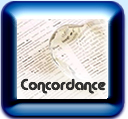Inside Higher Ed is reporting on another study looking at earning potential and choice of major. This one is from the Georgetown University Center on Education and the Workforce and comes to similar depressing conclusions about the earning potential of humanities and arts degrees.
Some of the results are to be expected. Science, engineering, and business majors tend to be better-off financially than majors in liberal arts and humanities, education, and counseling. In addition to a wide discrepancy among average salaries, the study finds that the most popular majors have not been the ones leading to high-paying jobs, that female and minority students have tended to cluster in low-paying fields, and that graduate degrees have been essentially required for some undergraduate majors if those students were to find good jobs.
One interesting point they make is that many arts/humanities degrees lead to careers where there isn’t a lot of mobility. If you get an engineering degree you often end up in management later in your career while those who become teachers don’t have the same opportunities. At the same time, the report mentions how the breadth and communication skills of the humanities are still valued:
Surveys routinely find that employers want their employees to have a deep knowledge of their topic but a broad range of skills, and some worry that undergraduate programs too chock-full of math and science courses are producing individuals who can’t handle managerial responsibilities.
I wonder if we will shift to a model where the arts and humanities become increasingly service disciplines that provide breadth to the majority of majors in business, science, and engineering.




